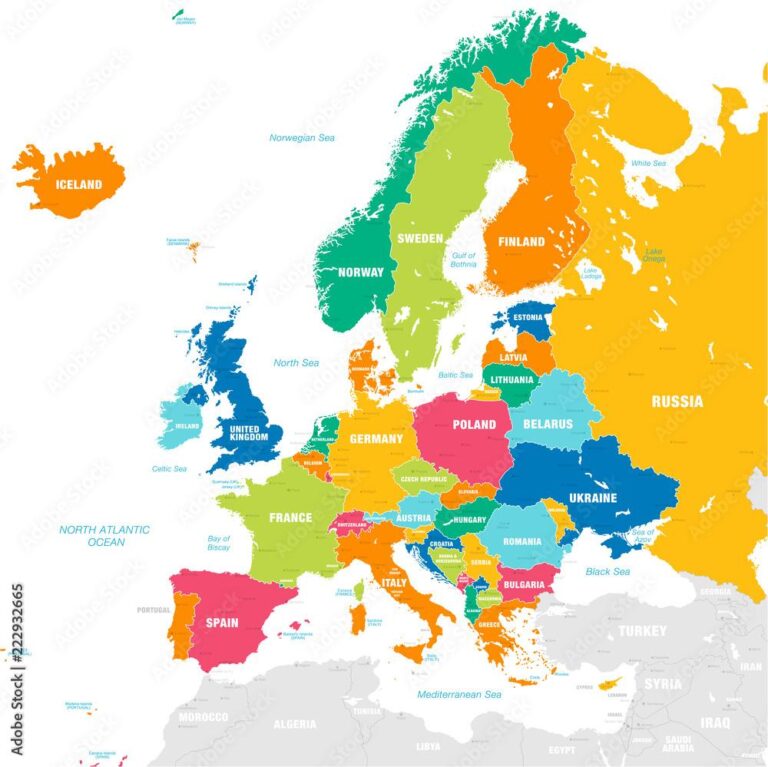At a high-stakes Asian summit, tensions flared as European delegations expressed strong reservations over recent U.S. proposals aimed at reshaping regional alliances and trade frameworks. The gathering, intended as a platform for cooperation and dialogue, instead spotlighted deep-seated geopolitical rifts, with India and Pakistan’s enduring hostility once again taking center stage. The developments underscore the complex and often contentious dynamics shaping Asia’s strategic landscape amid rising global power competition.
Europe Voices Strong Opposition to US Policy Suggestions at Key Asian Summit
European delegates expressed sharp criticism over the United States’ latest policy proposals during the summit, emphasizing concerns regarding sovereignty and regional autonomy. This opposition was particularly pronounced on issues related to trade agreements and security frameworks in Asia-Pacific, where Europeans argued that American initiatives overlook the nuanced geopolitical dynamics that define the region. The growing divide highlighted a broader transatlantic tension, complicating the path forward for multilateral cooperation.
Amid the diplomatic discourse, the summit also cast a spotlight on the escalating tension between India and Pakistan. Both nations displayed stern rhetoric and renewed accusations, underscoring deep-rooted hostility. The following table summarizes key points raised by both sides during their exchanges:
| Aspect | India’s Position | Pakistan’s Response |
|---|---|---|
| Security Concerns | Calls for counterterrorism cooperation | Denies accusations; demands ceasefire enforcement |
| Border Disputes | Asserts territorial integrity | Claims international mediation |
| Trade Relations | Seeks expanded dialogue | Stresses economic independence |
- European Union urged a more inclusive approach respecting regional sovereignty
- US proposals criticized as overly prescriptive and potentially destabilizing
- India and Pakistan remain entrenched in adversarial posturing, dimming hopes for immediate reconciliation
India Pakistan Tensions Escalate Amid Diplomatic Negotiations on Regional Stability
Amid high-stakes diplomatic talks aimed at fostering regional security, tensions between India and Pakistan have intensified, casting a shadow over broader Asian diplomatic efforts. The negotiators from both sides remained entrenched in their positions during recent sessions, with sharp rhetoric and mutual accusations dominating the dialogue. Key issues center around border disputes, counterterrorism initiatives, and water-sharing agreements, with neither side willing to concede ground. Observers noted the palpable strain as security concerns escalated in parallel with growing nationalist sentiments internally.
Primary points of contention include:
- Cross-border infiltration claims and countermeasures
- Disagreements over Kashmir’s political status
- Divergent visions for regional economic cooperation
| Issue | India’s Stance | Pakistan’s Stance |
|---|---|---|
| Border Security | Enhanced surveillance & strict patrols | Demands withdrawal of alleged aggressive forces |
| Kashmir | Integral part of Indian territory | Calls for self-determination referendum |
| Trade & Cooperation | Conditional trade resumption | Pushes for unfettered economic ties |
Experts Urge Multilateral Dialogue and Confidence Building Measures to Ease South Asian Conflicts
Amid heightened tensions in South Asia, leading experts from various countries have called for renewed multilateral efforts to de-escalate ongoing conflicts. They emphasize that sustained dialogue between India and Pakistan, alongside regional confidence-building measures (CBMs), is critical to breaking the cycle of hostility that threatens regional stability. Key recommendations include regular diplomatic exchanges, enhanced intelligence sharing, and third-party mediation to foster trust and transparency.
Additionally, experts highlight the importance of addressing underlying economic and security concerns through a collaborative framework. Proposed initiatives include:
- Joint disaster management drills
- Cross-border cultural and educational programs
- Establishment of hotlines to manage potential military misunderstandings
- Economic partnerships targeting border communities
| Measure | Expected Outcome |
|---|---|
| Regular Summits | Enhanced Political Dialogue |
| Intelligence Sharing | Reduced Security Threats |
| Cross-Border Programs | Increased Mutual Trust |
| Hotline Agreements | Conflict De-escalation |
Wrapping Up
As tensions lingered over the US proposals during the Asian summit, Europe’s firm pushback underscored the growing complexity of international diplomacy in the region. Meanwhile, the visible hostility between India and Pakistan served as a stark reminder of the enduring challenges that continue to shape South Asian geopolitics. As global powers jostle for influence, the outcomes of this gathering may well set the tone for future engagements across Asia and beyond.




